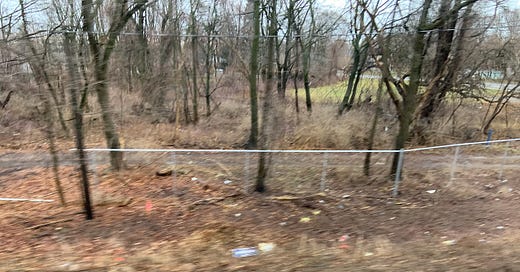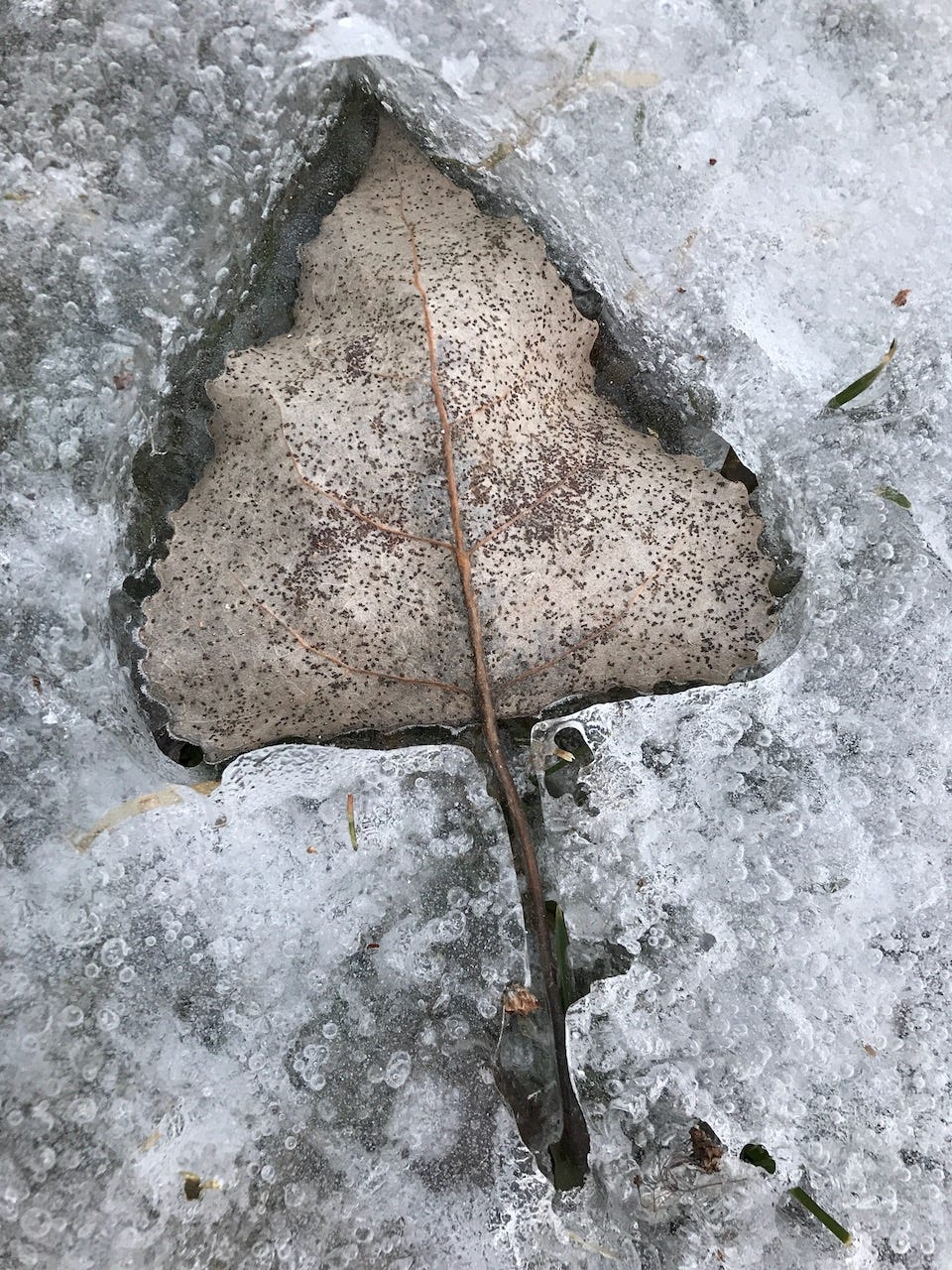Outside the library, a man takes a hose to the steps, not to clean them but to “keep people from sitting here all day.” I am looking down at a formidable smear of dried ketchup going unnoticed and unsprayed as he volunteers this cruel little explanation. Water that will nourish nothing and no one. Maybe the air. At some stage, it will become groundwater. Likely, it will pool in the parking lot, mix with the salt and oil stains and eternal construction mud, seep slowly through asphalt, evaporate in wind. People sit on the benches twenty feet away, waking up, forced to blink into the day in public, waiting for the Sally Ann across the street to open, for that first coffee. Always the thought: a few bad flips and that could be me, could be anyone. Living under the assumption that what’s amassed or accomplished is only what’s deserved, somehow inherent, ordained. Three times in as many days I’ve heard people, well-ensconced, speaking with authority that springs from absolutely nowhere about how “some of them don’t want to sleep inside.” That far-off refrain: ungrateful, so completely against our established systems. That old ditty coming out the speakers, out this man’s mouth (the damn ketchup still untouched), out the tailpipes, the security fences, the children on their colourful bikes, the adults dressed in grey two steps behind. Years ago I heard an interview with an outreach worker in Vancouver, who was asked about the root causes of homelessness. Her answer: grief.
Bugs revivifying in this warm January, blinking awake inside a house, desperate to find their way out. A ladybug on the windowsill. Fruit flies in the bathroom. We live in relation, always. Instead, we live something else here, something that does not correspond. All that’s destroyed or abandoned. Demolition, do-overs, lucrative, but neglect’s all around and piling up, skeleton of farmhouse, factory, forest, cordillera of refuse, dust storms of refuse, rooming house barely habitable, crumbling to dust, but still the vampiric landlord holds it on the brink, and the bungalow next door just went for under half a million and we talk about that as downturn, unfortunate, and it’s not like I don’t live off such wealth too, live in relation to it, and ever the whinging about paying taxes, seeped right into those marble halls, that standing water, you do the thing that makes you some scratch and then you get the fuck out of there, industrial yard abandoned, twisted aluminum silos, oil leaking. The hole gets dug, and then there’s a sale. Losses enormous, gains infinitesimal, reserved for the few. Puttering through these failures, societal in scope. A poem about a flower is never just about a flower. The woman and her three children waiting outside the soup kitchen. The man and his voices camped on the heating grate. We all live here together. The tents beside the creek attempt to break free, to survive the law’s allegiances to profit, but they are made to pull up their pegs with regularity. Not allowed to dwell like this. Not allowed any say. The language used is “community safety.” The nefarious three-lane one-way street through the centre of town, the ungoverned thoroughfares, the chain-store corridors, protection of private property. You can proceed with such rage through these flimsy human landscapes. A panoply.
Once, outside the library, on the steps, a person of no more than twenty wanted to give me a flower. I said this beauty should be for you, not me. I let loose a private wish that they had a quiet spot, that they could hear water as they drifted off to sleep. I lapsed into my usual processes. Their visage still showing the capacity for love, for life, that thirst, though fractured, insistent. The very picture of otherwise.





